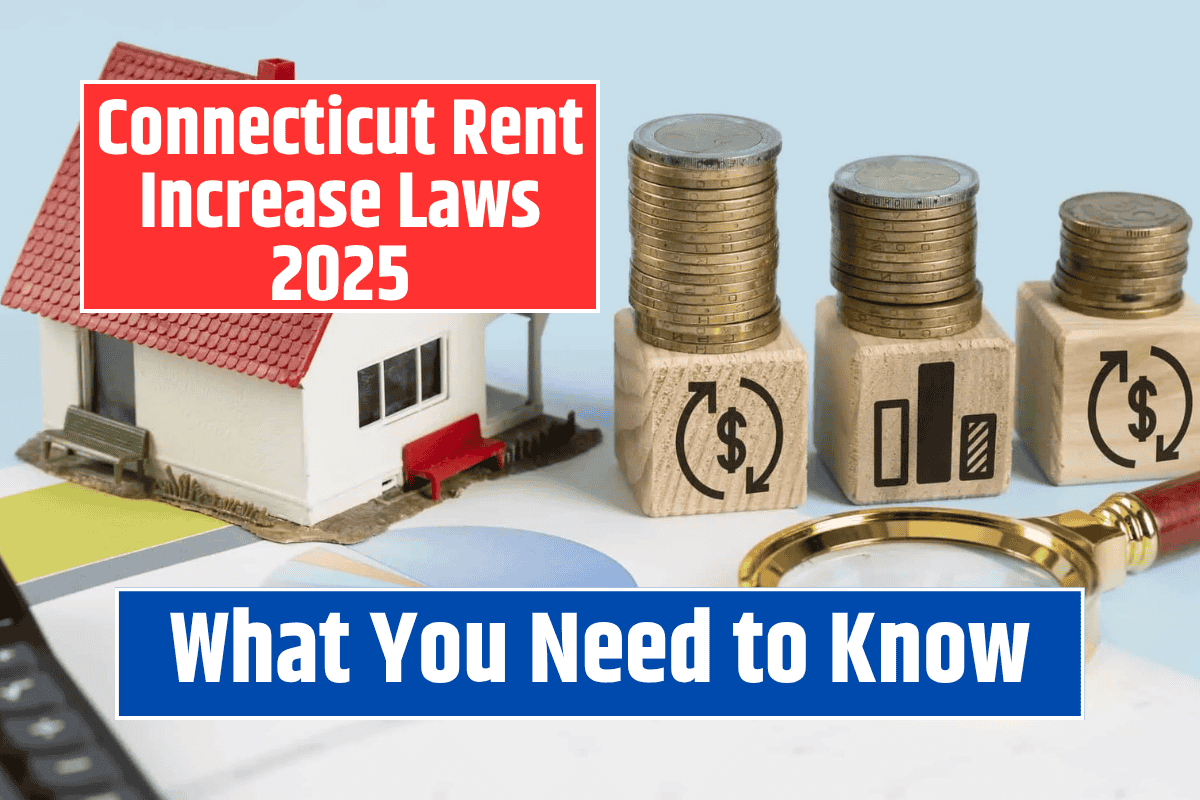Rent prices are rising across the country, and Connecticut is no exception. If you’re renting a home or apartment in the state, it’s important to understand your rights when it comes to rent increases.
Whether you’re a senior citizen, low-income renter, or someone just trying to keep a roof over your head, knowing the law can help you avoid unfair rent hikes.
Here’s what every Connecticut tenant should know about rent increase rules in 2025.
No Statewide Rent Control in Connecticut
Connecticut does not have a general rent control law that limits how much a landlord can raise the rent. This means most landlords can legally increase rent by any amount, as long as they give proper notice. However, some towns in Connecticut have created Fair Rent Commissions to protect tenants from unfair increases.
Fair Rent Commissions Offer Local Protection
About 15 towns in Connecticut have active Fair Rent Commissions in place. These commissions review complaints from tenants—especially those who are elderly, disabled, or low-income.
If a landlord raises rent by an amount that seems excessive or unreasonable, the commission can step in and either deny or limit the increase.
These commissions offer valuable support for renters in cities like New Haven, Stamford, and Hartford, among others. There’s also a push to expand these protections statewide by 2028, which could help more renters in smaller towns or rural areas.
How Much Notice Does a Landlord Have to Give?
Even without statewide rent caps, landlords still have to follow strict notice rules when raising the rent.
For leases longer than one month, landlords must provide written notice at least 45 days before the rent goes up.
For week-to-week leases, notice must be equal to the rental period—so, 7 days’ notice for weekly renters.
Rent Hikes Must Be Fair and Legal
Landlords cannot raise the rent in retaliation for a tenant filing a complaint, reporting housing issues, or joining a tenant union. These are considered retaliatory rent increases, and they are illegal.
Similarly, landlords cannot raise rent based on race, religion, disability, or other protected characteristics, according to Connecticut’s Fair Housing laws.
What If the Rent Increase Feels Unfair?
If you live in a town with a Fair Rent Commission, you can file a complaint. The commission will review your situation and investigate whether the increase is justified.
Landlords who ignore a commission ruling may face fines and legal action. In some cases, the commission can order the landlord to lower the rent back to a fair rate.
If your town doesn’t have a Fair Rent Commission, your options are more limited. Your rent increase would generally be legal as long as you were given proper notice and it wasn’t retaliatory or discriminatory.
In 2025, Connecticut renters need to be aware that while there’s no statewide rent control, there are protections in place—especially for vulnerable tenants in towns with Fair Rent Commissions. All renters are protected from unfair treatment, like discrimination or retaliation.
If you feel a rent hike is unfair, check if your town has a Fair Rent Commission, and don’t hesitate to speak up. Understanding your rights can help you stay protected and prepared.
[1] https://www.hemlane.com/resources/connecticut-rent-control-laws/
[2] https://www.robertcwhite.com/what-landlords-need-to-know-in-2025
[3] https://ctmirror.org/2025/03/07/ct-senate-bill-fair-rent-commissions/
[4] https://www.youtube.com/watch?v=KJOJRRam24w












